A block of mass m is at rest under the action of force F against a wall as shown in figure. Which of the following statement is incorrect?
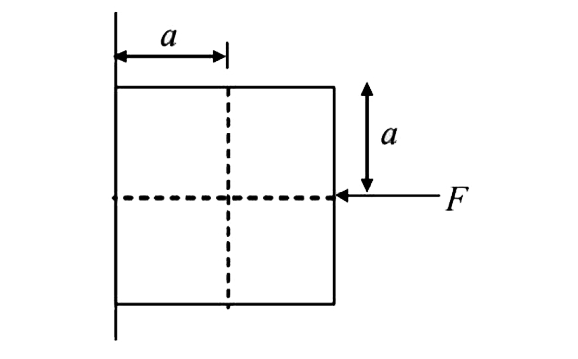
f = mg [where f is the friction force]
F = N [where N is the normal force]
F will not produce torque
N will not produce torque
The correct Answer is:4
The cubical block is in equilibrium For translational equilibrium (a) ∑Fx=0⇒F=N (b) ∑Fx=0⇒f=mgFor Rotational Equilibrium∑τe=0 where τe=torque about c.m. C Torque created by frictional force (J) about C =f x a in clockwise direction. There should be another torque which should counter this torque. The Normal reaction N on the block acts as shown. This will create a torque N×b in the anticlockwise direction. Such that f×=N x b.
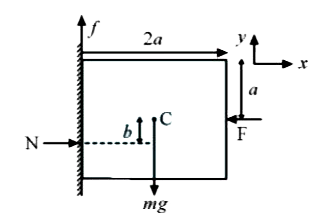
Similar Questions
Knowledge Check
A block of mass m is at rest under the action of force F against a wall as shown in the figure. Which of the following statements is incorrect?
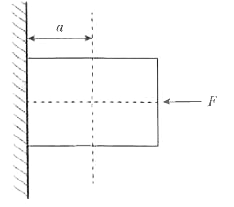 Af = mg (where f is frictional force)BF-N (where N is normal force)CNo net torque acts on the blockDN will not produce torque
Af = mg (where f is frictional force)BF-N (where N is normal force)CNo net torque acts on the blockDN will not produce torqueAn object of mass 2 kg is moving under the action of a force which varies with time as shown in the figure.
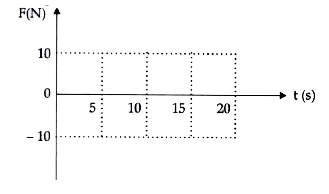
Which one of the following statements is correct for the interval from 0 to 20 ?AThe momentum of the object decreases by 75 kg m/s.BThe momentum of the object increases by 75 kg m/s.CThe mometum of the object increases by 125 kg m/s.DThe change in momentum cannot be found as intial speed is unknown.A block of mass 'm' is held stationary against a rough wall by applying a force F as shown. Which one of the following statement is incorrect ?
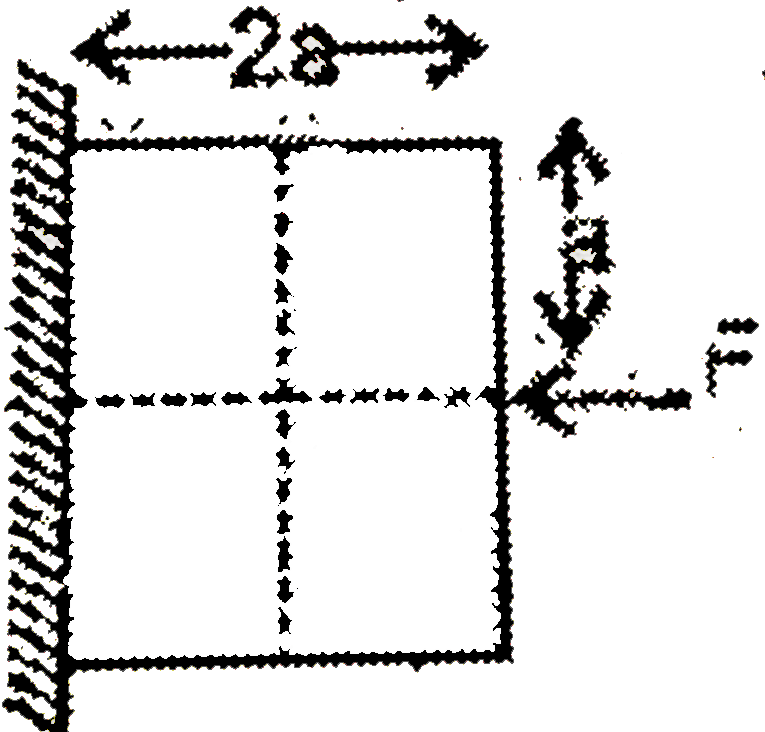 AFriction force f=mgBNormal reaction N=FCF will not produce a torqueDN will not produce any torque
AFriction force f=mgBNormal reaction N=FCF will not produce a torqueDN will not produce any torque

Two blocks connected by a spring rest on a smooth horizontal plane as shown in Fig. A constant force F start acting on block m2 as shown in the figure. Which of the following statements are not correct?
View SolutionThree identical blocks each of mass M are along a frictionless table and a force F is acting as shown. Which of the following statements is false ?

View SolutionTwo blocks connected by a spring rest on a smooth ITIM horizontal plane as shown in figure. A constant force F starts acting on block m2 as shown in the figure. Which of the following statements are not correct?

View SolutionA block of mass m is suspended by different springs of force constant shown in figure.
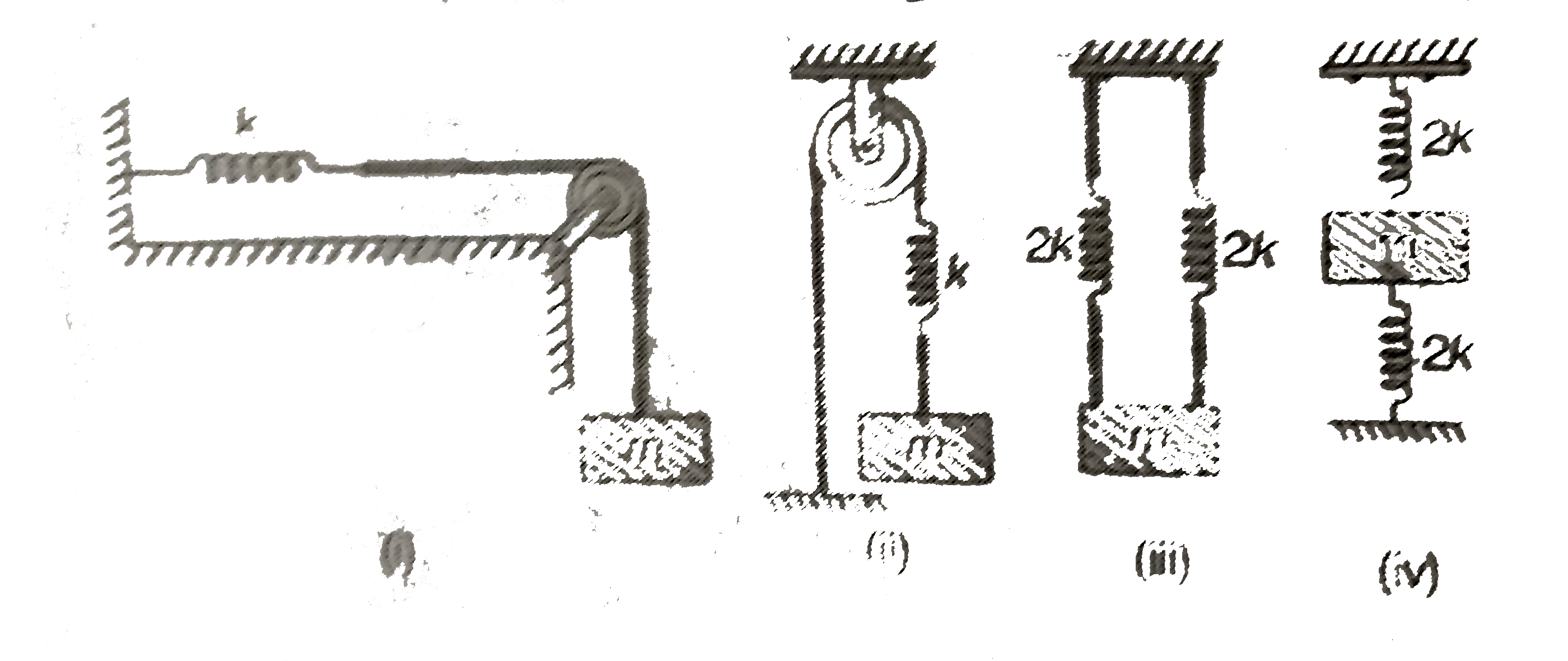
View SolutionA block of mass m is held fixed against a wall by a applying a horizontal force F. Which of the following option is incorrect :
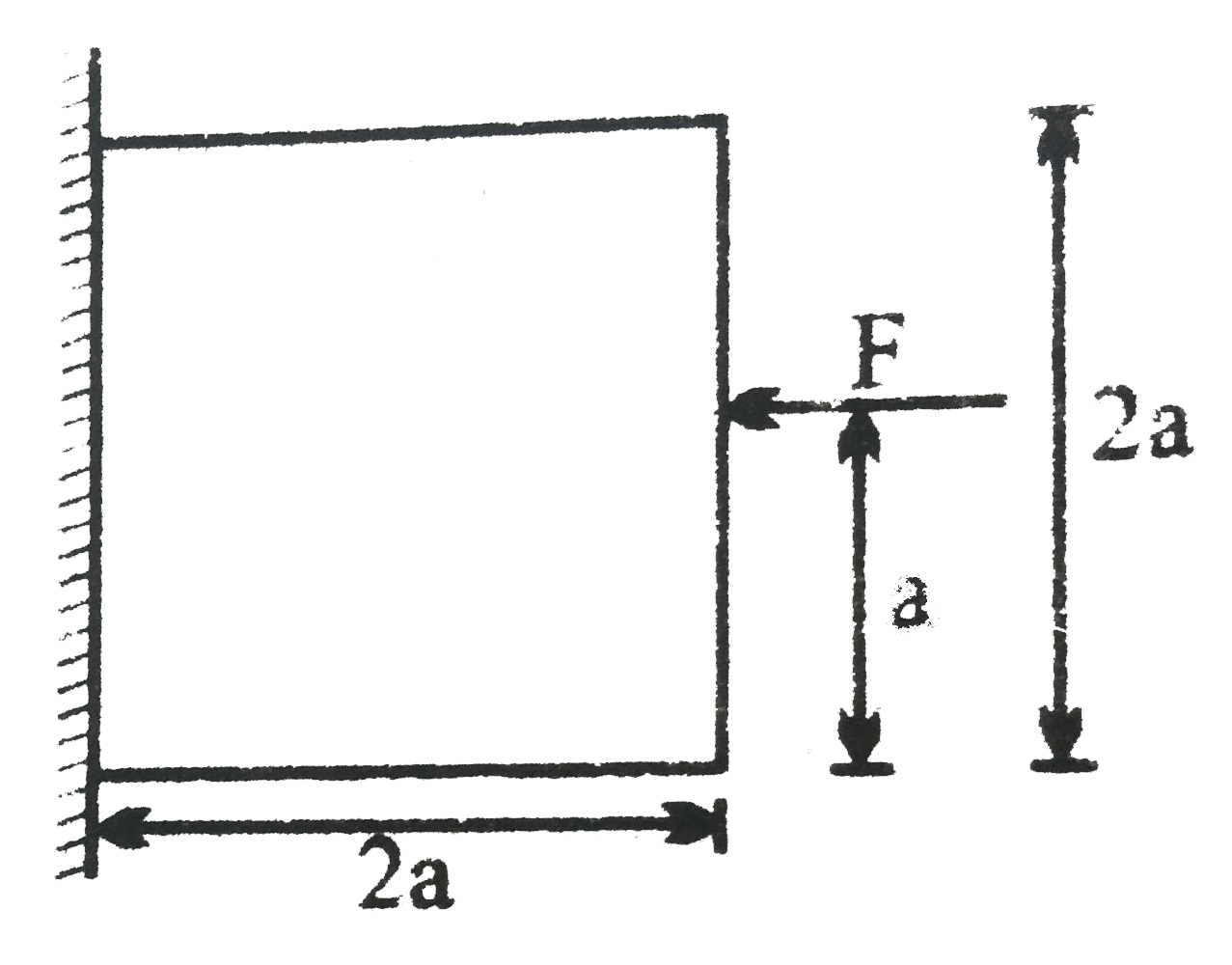 .
.
View Solution


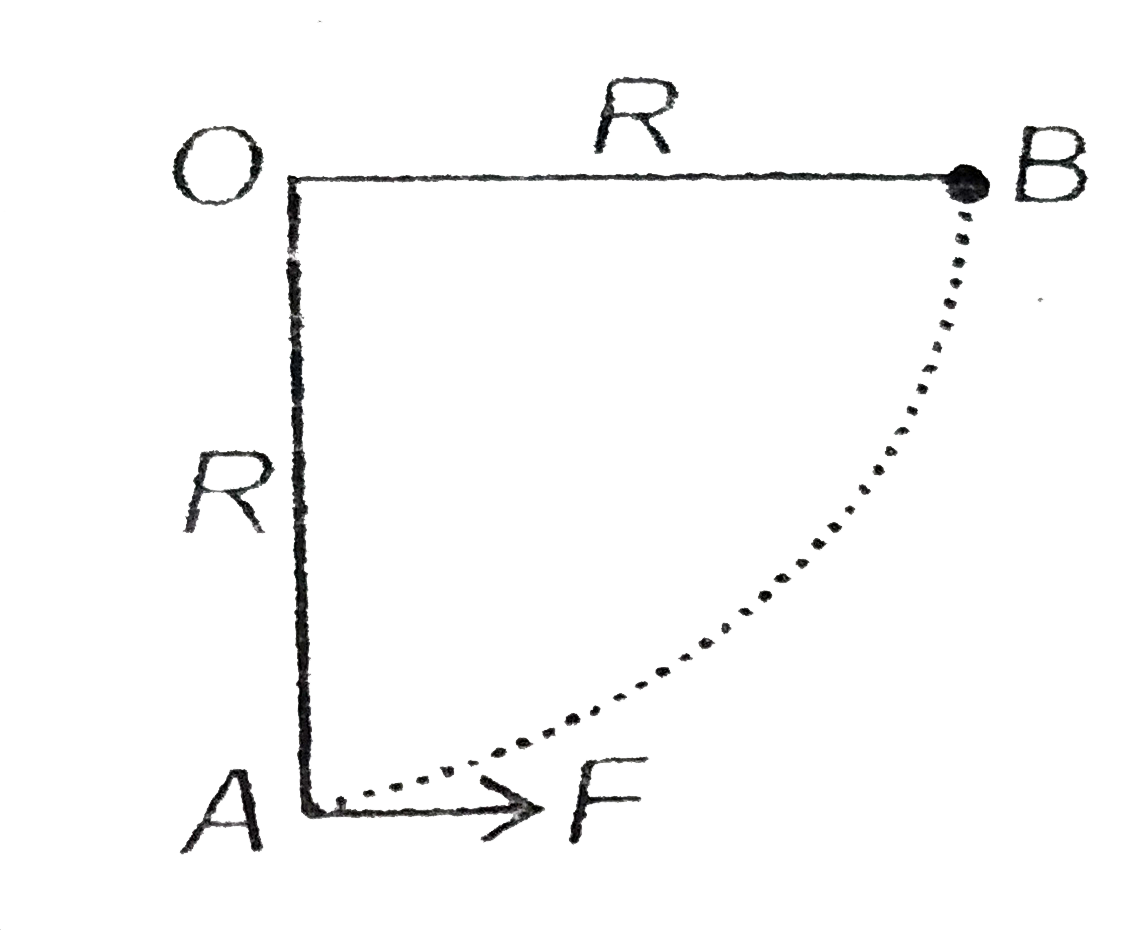
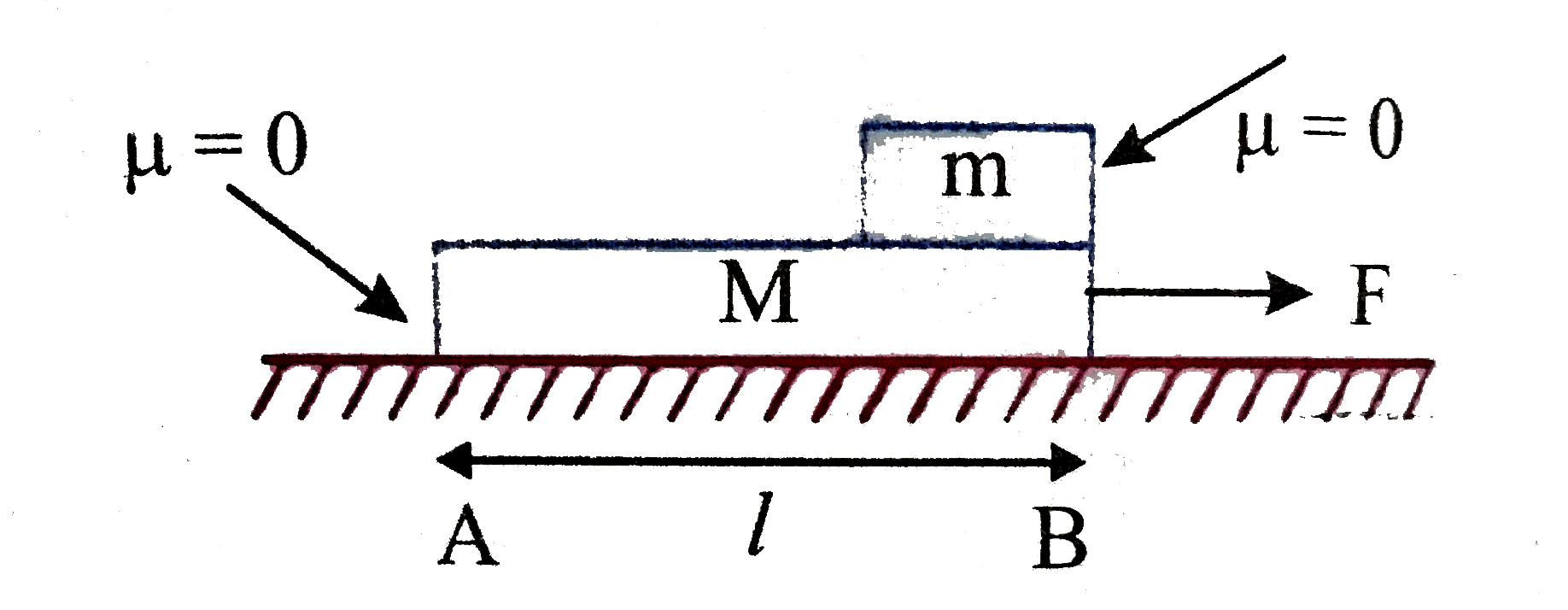 .
.